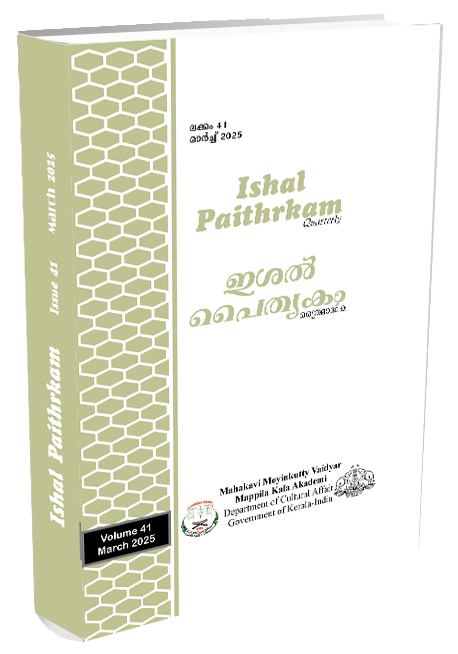The Living Desert: Eco-Aesthetics and Environmental Critique in Jean-Marie Gustave Le Clézio's Desert
Keywords:
Anthropocentrism, Eco-aesthetics, Desert ecosystem, Western civilization, Ecological ResponsibilityAbstract
Jean-Marie Gustave Le Clézio's novel Desert presents an intricate exploration of the profound connection between humans and the natural world, with a particular focus on the Tuareg people and the desert ecosystem. This analysis investigates the manifestation of eco-aesthetics within the novel, specifically through its depiction of the desert landscape, the characters' relationships with nature, and the broader thematic elements that critique modernity and colonialism. The study examines Le Clézio’s ecological vision as articulated in Desert, analysing how he challenges anthropocentrism, integrates philosophical and poetic elements, reflects Amerindian influences, and draws parallels between shamanic and artistic practices. Additionally, it critiques Western civilization and emphasizes ecological and ethical responsibility. The article highlights Le Clézio’s message about the importance of recognizing the intrinsic value of nature and the ethical imperative to protect it.
Downloads
References
Lalonde, S. (2019). Post-Colonial Healing Through Environmental Justice: A Psychoanalytic Reading of J.M.G Le Clézio’s Literature. Postcolonial Interventions, 04(02), 85–113.
Le Clezio, J. M.G. (2011). Desert (C. Dickson, Trans.). London, England: Atlantic Books.
Martin, B. (2013). The Ecological Vision of Jean-Marie Le Clézio. The Ecological Vision of Jean-Marie Le Clézio: Ecocritical Perspectives on His Works (K. Moser & B. Dicks, Rodopi Eds.), 1-22.
Miles, M. (2014). Eco-Aesthetics: Art, Literature and Architecture in a Period of Climate Change. Bloomsbury.
Moser, K. (2011). J. M. G. Le Clézio’s Urban Phantoms and the Paradox of Invisibility. The Modern Language Review, 106(3), 724-744.
Smith, K. W. (1985). Forgetting to remember: Anamnesis and History in J. M. G. Le Clézio’s Désert. Studies in 20th Century Literature, 10(1), 99-115.
Souleymane, A. (2015). Resistance in the Desert: A Postcolonial Reading of the Novel Desert by Le Clézio. International Journal of Humanities and Cultural Studies, 03(01), 571–581.
Thompson, W. (1997). Voyage and Immobility in J. M. G. Le Clézio’s Désert and La quarantaine. World Literature Today, 71(4), 709-716.
Downloads
Published
Issue
Section
License
Copyright (c) 2025 ISHAL PAITHRKAM

This work is licensed under a Creative Commons Attribution-NoDerivatives 4.0 International License.

